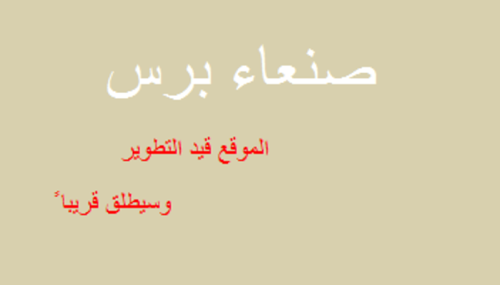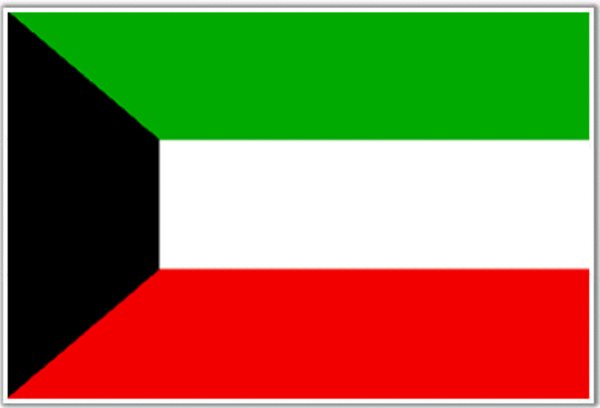As we wrote a couple of weeks ago, Facebook has a “crowd-sourced” way of handling complaints. If a certain number of users register complaints against another user, that user is automatically banned and his or her profile is locked down.

We were told by a public relations representative, Simon Axten, that “(t)he assumptions made in the blog post are false.” (We weren’t really assuming, but OK.) “We don’t take any action on a user report until it has been investigated by our professional reviewers, and they have positively identified a violation of our policies.” This is contradicted by the facts as we know them.
First, Sarah Roy, Facebook’s public relations specialist in France, told our French editor, Fabrice Epelboin, that the bans were automated. Second, Epelboin’s account was in fact blocked.
A group of Islamists have been targeting persons they find offensive and using this method to silence them. Fabrice has been a target a couple of times. See the latest below, where he was blocked automatically. He wrote to Axten after this happen and Facebook acknowledged that, “(i)t’s possible there was a mistake.” Well, that’s one way to put it. If it’s a mistake it has a long history now of being consistently made. It may well be that it is a negative effect of Facebook’s crowd-sourced block policy. More on the background from ReadWriteWeb and ReadWriteWeb France (in translation from the French).
The Facebook page devoted to targeting people for blocking

Turkey sentences student to year in jail for Facebook. “The 4th Magistrate Criminal Court in Eski?ehir in north-western Turkey sentenced 22-year-old Erdem Büyük to imprisonment of 11 months because the university student posted a caricature of Büyük?ehir Mayor Yilmaz Büyüker?en on the social networking website Facebook.” The U.S. notion of the offended party in a libel suite needing to prove malice, and guilt, is rare globally. The court deferred the sentence for five years. If the student commits a similar crime, the sentence will begin. A pretty clever way to ensure cooperation.
Facebook users in Columbia use the social networking site for violence. Antanas Mockus, a candidate for president in Columbia, and Jerome Uribe, the son of the current president, have both been issued death threats via Facebook. A Facebook page called “I promise to kill Antanas Mockus before the 30th of May” has been shut down and Colombian anti-terror police are investigating.

China to force all internet users to register names before posting. “A report in yesterday’s issue of China Daily quotes Wang Chen, the minister of the State Council Information Office, as saying the authorities were ‘exploring an identity authentication system’ for users of online forums. Internet users are currently required to register before posting comments on these site but they can use a pseudonym to post. Wang said that, after preventing anonymous posting on major news portals and commercial websites, the aim now was to extend the system to online forums and chat websites.
Thailand interrogates U.S. citizen, and the U.S. government allows it. “Anthony Chai, an American citizen from California, was interrogated by Thai officials in Thailand and again later in the U.S. for allegedly insulting the monarchy in 2006. Originally from Thailand, Chai was granted US citizenship in the late 1970s. He faces possible arrest if he returns to Thailand…In 2006, Thai officials also contacted the company who hosted the website where comments about the Thai king were traced to Chai’s business computer. It is believed that Chai’s IP address was provided by the web hosting company without his knowledge. In response, the U.S.-based hosting company shut down the website.” Thailand uses lese majeste laws to harass opponents.
U.S. state of Washington okays library censorship. “A Washington state supreme court issued a decision…supporting a public library’s decision to fully filter Internet content, stating that such filtering could be considered ‘collection development.'” This could provide a precedent for a library developing a collection that excluded, say, a political party or historical material on slavery.
Chávez’s Twitter reaches almost 350,000. After calling it “terrorism,” the Venezuelan president’s three week-old Twitter account now has just shy of 350K followers. Number one with a bullet in Venezuela. Chávez has never been known as a big fan of conversation – more of making pronunciamientos– so Twitter doesn’t seem like it will loosen him up much, especially given he follows only five accounts: a pro-Chávez newspaper, two political allies, his own party and of course Fidel Castro.
Russia arrests Islamic convert blogger. “Ethnic Russian convert to Islam Alexei Dudko was arrested around May 5 and has been kept locked, away from lawyers and relatives. His blog was mainly focusing on the events in Ingushetia in the North Caucasus, but also general events in Russia attracted his attention. He kept his real name in strict secret and, according to some sources, his arrest came days after his name somehow surfaced in the internet. Needless to say, that the person was very critical of the Russian authorities.”
Britain finds Twitter bomb joker guilty. “Paul Chambers, who Monday was found guilty of tweeting ‘a message by means of a public electronic message that was grossly offensive or of an indecent, obscene or menacing character contrary to the Communications Act 2003.'” He was fined 1,000 pounds and now has a criminal record, for Tweeting he would bomb his local airport if it didn’t get its act together and clean up the runway in a week so he could visit his girlfriend. Stupid, but deemed non-threatening by the security personnel of the airport in question.
Yemen sentences online editor to year in jail. “The former editor of the Sanaa Press website and owner of the newspaper Al-Tajdid, Al-Leswas was convicted by Judge Mansur Al-Sha’e of the Sanaa special court for press and publication offenses on 2 May for articles about alleged corruption within the Al-Bayda province power company…On 3 May, the day after the trial, the Mukhabarat (intelligence services) arrested Abdelsalam Mutabaq, the editor of the Al-Bayda Press website, for calling for Al-Leswas’ release. After being held in a Mukhabarat detention centre, he was transferred to Al-Bayda’s main prison. ” Al-Leswas has fought harassment for years. He’s a brave guy. Anyone who works in journalism in Yemen can be nothing less.

Uzbekistand tries to erase the Andijan massacre. Five years ago President Islam Karimov ordered Uzbeki government troops to murder hundreds of protesters in the city of Andijan. They subsequently ejected all foreign journalists for writing about it, purged domestic journalists – even sending the president’s nephew, journalist Dzhamshid Karimov to a mental hospital – and blocked websites, which are still unavailable.
Cuba reduces blogger’s sentence. Diana Virgen García was arrested and sentenced, in one day, to almost two years in prison for blogging. Her sentence was reduced to a fine of $12.
Egypt bans Skype. There has been a “government ban, announced in March but mostly unnoticed until this week, on using Skype, the popular Internet phone program.” Egypt’s mobile phone carriers are prohibited from hosting Skype.
Gizmodo warrant unsealed. The media suite to unseal the warrant used to seize computers and paperwork in the iPhone case has been successful.
Kuwait arrests blogger/journalist. “Muhammad ‘Abd al-Qader al-Jasem voluntarily turned himself in to State Security officials on Monday, after being informed that a warrant for his arrest had been prepared.” Kuwait’s Prime Minister Al Sabah has filed five defamation complaints against him in court and another person close to the PM filed another 10. Smacks of harassment. Al-Jasem was on bail on appeal for a six month sentence for defamation. He said he would not stop posting his articles.

Indian blogger arrested. K.V. Shine was arrested in Kerala state for “denigrating the Nair community especially the Nair women.” Sounds like a tool, for sure. But arrests of this nature make arrests for outright political goals much, much easier.
Facebook screen shot from Fabrice Epelboin
Mockus photo from Smoreno2007
Arabic script all that is left from Sanaa Press

















